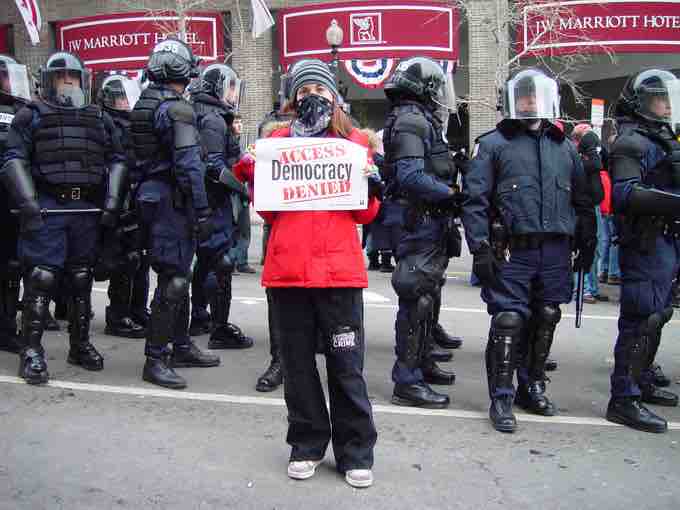Basically, social change comes from two sources. One source is random or unique factors such as climate, weather, or the presence of specific groups of people. Another source is systematic factors, such as government, available resources, and the social organization of society. On the whole, social change is usually a combination of systematic factors along with some random or unique factors.
There are many theories of social change. Generally, a theory of change should include elements such as structural aspects of change (like population shifts), processes and mechanisms of social change, and directions of change.
Political Process Theory
Political Process Theory, sometimes also known as the Political Opportunity Theory,is an approach to social movements heavily influenced by political sociology. It argues that the success or failure of social movements is primarily affected by political opportunities. Social theorists Peter Eisinger, Sidney Tarrow, David Meyer, and Doug McAdam are considered among the most prominent supporters of this theory. Political Process Theory is similar to resource mobilization theory (which considers the mobilization of resources to be the key ingredient of a successful movement) in many regards, and emphasizes political opportunities as the social structure that is important for social movement development. Political Process Theory argues that there are three vital components for movement formation: insurgent consciousness, organizational strength, and political opportunities.
"Insurgent consciousness" refers back to the notions of deprivation and grievances. In this case, the idea is that certain members of society feel like they are being mistreated or that somehow the system they are a part of is unjust . The insurgent consciousness is the collective sense of injustice that movement members (or potential movement members) feel and serves as the motivation for movement organization.

Political Process Theory
One of the advantages of the political process theory is that it addresses the issue of timing or emergence of social movements. Photo taken at the 2005 U.S. Presidential inauguration protest.
"Organizational strength" falls in line with resource-mobilization theory, arguing that in order for a social movement to organize it must have strong leadership and sufficient resources.
Finally, "political opportunity" refers to the receptivity or vulnerability of the existing political system to challenge. This vulnerability can be the result of any of the following (or a combination thereof):
- growth of political pluralism
- decline in effectiveness of repression
- elite disunity; the leading factions are internally fragmented
- a broadening of access to institutional participation in political processes
- support of organized opposition by elites
One of the advantages of the political process theory is that it addresses the issue of timing of the emergence of social movements. Some groups may have the insurgent consciousness and resources to mobilize, but because political opportunities are closed, they will not have any success. The theory, argues that all three of these components are important for the successful creation of a movement.
Critics of the political process theory and resource-mobilization theory point out that neither theory discusses the culture of movements to any great degree. This has presented culture theorists an opportunity to expound on the importance of culture.